The Impact of Nabi Ebrahim alaihis salaam on the city and the Hajj
The story of Makkah Mukarramah and the Hajj is interwoven into the story of Prophet Ebrahim alaihis salaam and his family. Here is some of the lasting impact of this great Prophet on the city, and the lessons contained therein for us.
Barren Land
When Prophet Ebrahim alaihis salaam left his wife and son in the vicinity of what was to become Makkah Mukarramah, there was a desolate landscape of nothing but sand and rocks. This has been the case through the ensuing centuries with no visible means of supporting life in the form of rivers, regular rainfall or fertile, cultivatable soil.
Yet even before Islam the city had a pull upon the hearts of humanity. The second century Greek geographer Claudius Ptolemy labelled it as Makoraba, the temple or place of worship.
Prophet Ebrahim alaihis salaam describes the landscape in these terms:
“O our Lord! I have settled some of my offspring in an uncultivable, barren valley near Your Sacred House…” (Quran, 14:37)
Despite all this, Makkah Mukarramah became a viable city and went on to play host to millions of pilgrims over the centuries.
The lesson we are being taught is that the Ultimate Provider is Allah Ta’ala. While we go about our daily lives and careers, we should not lose sight of the fact that sustenance is decided by Allah Ta’ala. We need to trust in Him.
Fruit in Plenty
Prophet Ebrahim alaihis salaam acknowledges the reality of existence; that his family would need a food source. He makes a Dua for them:
“Provide them with fruits that they may be grateful.” (Quran, 14:37)
The manifestation of this Dua was acknowledged by the 12th century travel writer from Muslim Spain Ibn al Jubayr. He comes from the fabulously fertile lands of Spain where crops and fruit grown in abundance. He enters the desert around Makkah Mukarramah and is astounded to see in the city grapes, figs, pomegranates, peaches, lemons, cucumber and numerous other vegetables.
He waxes lyrical about the watermelons; that you smell the fragrance before you see it, and that just smelling it is almost sufficient to enjoy it without eating it. He describes the taste as being like candy or pure honey. He notes that the reader would be forgiven for thinking that he is exaggerating, but that the taste is even better than he can describe.
He also goes on to relate how the Saru tribe from Yemen traditionally come before Hajj to perform Umrah and to supply the pilgrims and the city with grains, wheats, honey, butter, almonds, condiments, walnuts and fruits. They would come with thousands of laden camels and barter the goods at ridiculously low prices. These stocks would sustain the pilgrims and the city for the entire year.
Power of Dua
What we also learn from this Dua of Prophet Ebrahim alaihis salaam is that you don’t know whose Duas could be the means of sustaining you in the journey of life. The pilgrims of Makkah Mukarramah and the citizens have been enjoying fruit from around the world due to this Dua of Prophet Ebrahim alaihis salaam.
Parents should make it a practice to continuously make good Duas for their children for the Hadith tells us that these Duas are not rejected:
“Three Duas are undoubtedly answered: the Dua of one who is wronged, the Dua of the traveller and the Dua of a father for his child.” (Ibn Majah, 3862)
The Hadith sounds a stern warning against making a bad Dua for your child:
“Do not pray against yourselves, do not pray against your children, do not pray against your wealth, lest that coincides with a time when Allah is asked and He gives, so He answers your prayer.” (Muslim, 3014)
At the same time, kids need to earn the good Duas of their parents, teachers and elders by being obedient, helpful and respectful to them.
The way that Makkah Mukarramah has been sustained over the centuries is also a living example of how our sustenance can come from unexpected sources. Make the effort to earn a living, but ensure that it is in accordance with what pleases Allah Ta’ala and the doors of opportunity will open up.
Make the Connection
The obligation of Hajj to the city of Makkah Mukarramah situated in an inhospitable desert, surrounded by mountains teaches us another life lesson: In the grind of our daily activities we need to find space away from everything to make a connection with Allah Ta’ala. We need to have time alone with Allah Ta’ala to realign our focus.
Prophet Muhammad sallallahu alaihi wa sallam would retire to the cave of Hira high in a mountain away from the city for contemplation.
Imam Ghazali rahimahullah spent 10 years in Damascus where he would worship alone at the Umayyad Masjid, and at the Dome of the Rock in Jerusalem. This break from his fabulously successful life and career as the most celebrated scholar of the Muslim world allowed him to infuse spirit in his subsequent lessons. It allowed him to reignite the passion for Islam that was missing in the populace.
The Hajj takes us away from our ordered existence and puts us into the desert. It forces the pilgrim standing with simple cloth, bare head and empty hands to ponder on the reality of existence.
It is critically important for people to make this time alone with Allah Ta’ala, away from group activities and social engagements. For some it might be the early moments of dark before Fajr, for others it might be spending quality time alone in the Masjid, or in ones place of Salaah in the house.

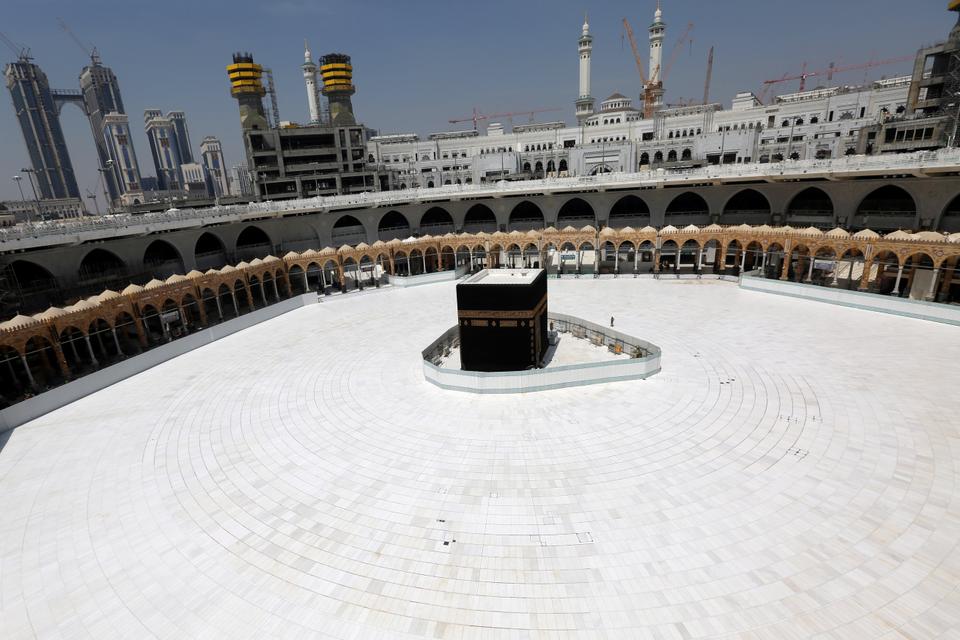
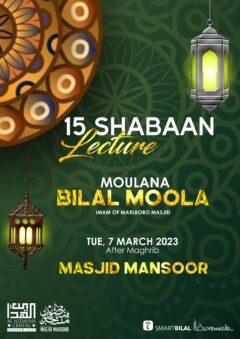
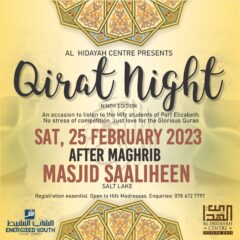
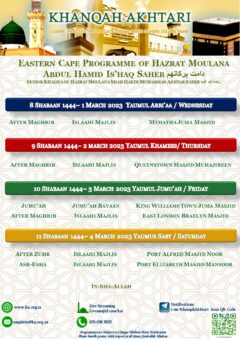
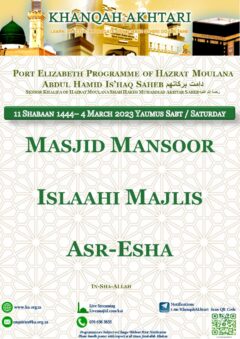
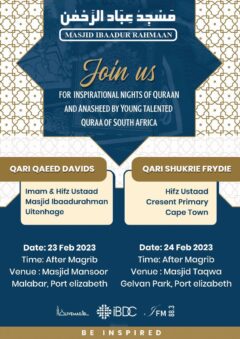
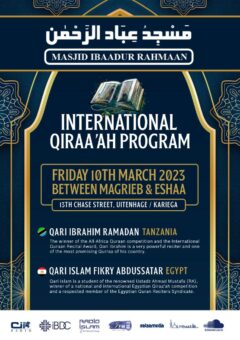



COMMENTS